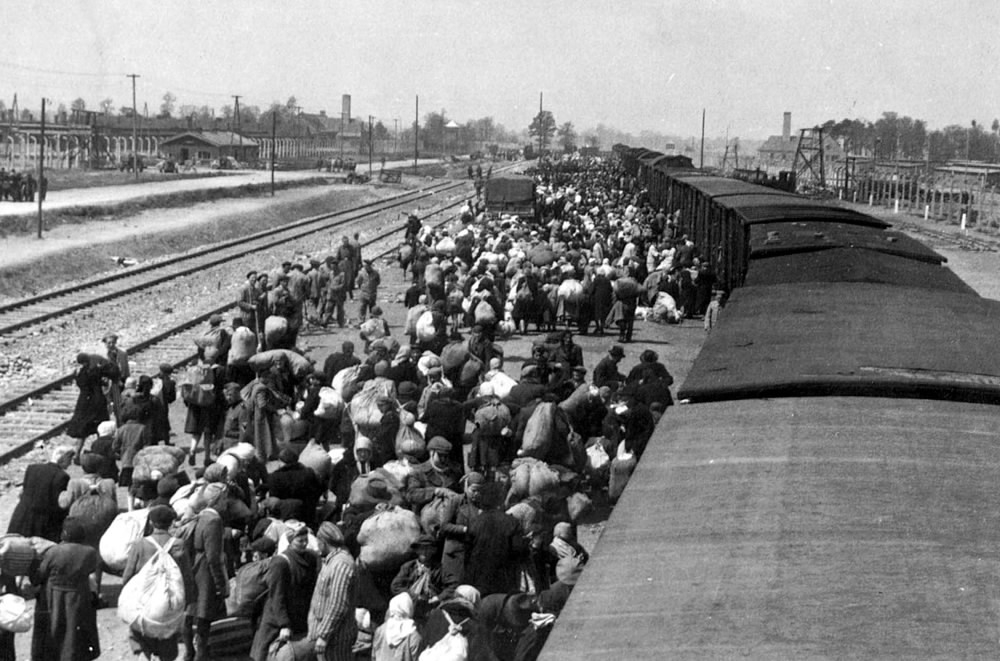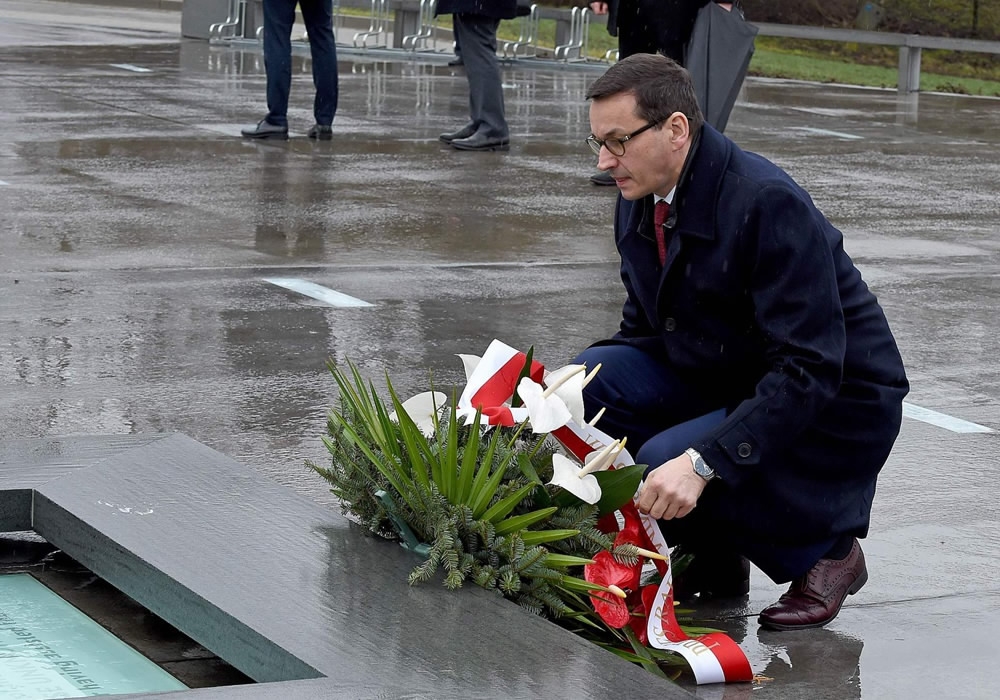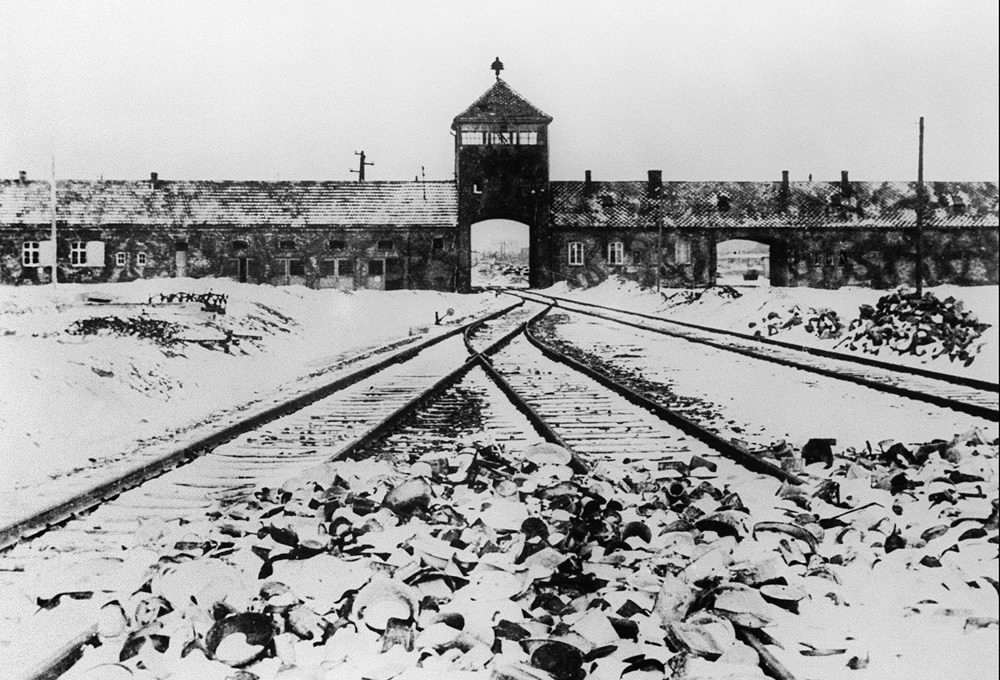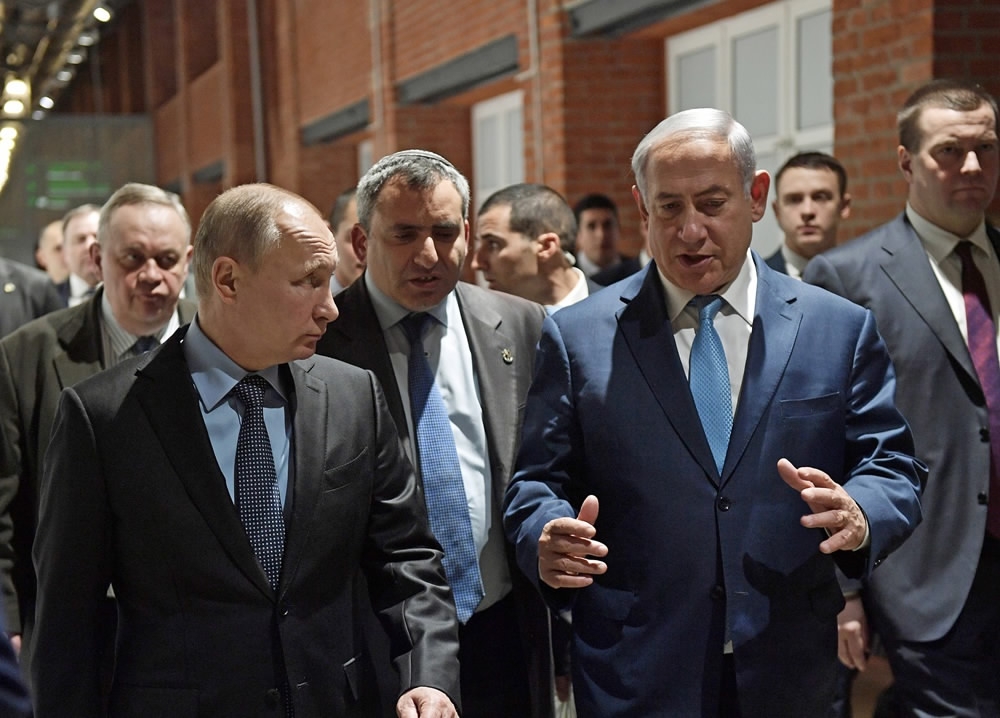The Israeli embassy in Warsaw on Friday said it has observed a "wave of anti-Semitic statements" in Poland, as a diplomatic row rages over a new Polish bill regarding the Holocaust and the definition of Nazi death camps.
Poland's senate on Thursday passed a controversial Holocaust bill that had been meant to defend the country's image abroad but which instead provoked Israel's anger and drew concern from the US as well as from various Jewish groups and global institutions like the International Auschwitz Council.

May 27, 1944: Jews alight from a train in the Auschwitz-Birkenau extermination camp in Oswiecim, Poland. /VCG Photo
May 27, 1944: Jews alight from a train in the Auschwitz-Birkenau extermination camp in Oswiecim, Poland. /VCG Photo
The legislation, which still needs the president's signature to take effect, was introduced by the governing right-wing Law and Justice (PiS) party to stop people from erroneously describing Nazi German death camps as Polish. It sets fines or a maximum three-year jail term for anyone who refers to the camps as Polish or accuses Poland of complicity in the Third Reich's crimes.
Israel, however, has expressed concern that the legislation relating to the extermination of Jews by Nazi Germany in occupied Poland during World War Two could serve to deny the involvement of individual Poles in the Holocaust.

Poland's Prime Minister Mateusz Morawiecki lays a wreath to honor the Ulmas, a Polish family killed by Nazi Germans for rescuing Jews during the Holocaust, outside a museum documenting their fate in the village of Markowa, southeastern Poland, January 2, 2018. /VCG Photo
Poland's Prime Minister Mateusz Morawiecki lays a wreath to honor the Ulmas, a Polish family killed by Nazi Germans for rescuing Jews during the Holocaust, outside a museum documenting their fate in the village of Markowa, southeastern Poland, January 2, 2018. /VCG Photo
Polish media in controversy
"In the last few days we could not help but notice a wave of anti-Semitic statements, reaching the Embassy through all channels of communication. Many of them targeted Ambassador Anna Azari personally," the embassy said in a statement on its website.
"Anti-Semitic statements are overflowing the Internet channels in Poland, but they have become present on the mainstream media too, especially on the TVP Info," it added.
A recent commentator on the state-run TVP station had made the ironic statement that "we could say these camps were neither German nor Polish but Jewish. Because who operated the crematoria? And who died there?"
Another commenter had sent out a tweet using the Polish version of an offensive term against Jews, "greedy kike."

January 1945: The Auschwitz concentration camp liberated by Soviet troops in Oswiecim, Poland. /VCG Photo
January 1945: The Auschwitz concentration camp liberated by Soviet troops in Oswiecim, Poland. /VCG Photo
The Israeli embassy did not specifically mention these examples, but they triggered much criticism in Poland. TVP later on Friday issued an official apology, deleted the offensive content from its Twitter account and announced "disciplinary action" against those responsible.
"The Management Board of Polish Television is of the opinion that there can be no place on the public broadcaster for discriminatory and exclusionary content," TVP said in a public statement that also offered an apology to Azari.
'Do or die moment' for Polish PM
Poland's Prime Minister Mateusz Morawiecki on Friday said that finding a way out of the diplomatic row was a "do or die moment" for him.

Russia's President Vladimir Putin (L front) and Israel's Prime Minister Benjamin Netanyahu (R front) attend an event at the Jewish Museum and Tolerance Center two days after the International Holocaust Remembrance Day in Moscow, Russia, January 29, 2018. /VCG Photo
Russia's President Vladimir Putin (L front) and Israel's Prime Minister Benjamin Netanyahu (R front) attend an event at the Jewish Museum and Tolerance Center two days after the International Holocaust Remembrance Day in Moscow, Russia, January 29, 2018. /VCG Photo
"This is a temporary weakening of relations with Israel and the USA but I hope that soon they will improve as we will explain our position," Morawiecki told a group of foreign journalists. "As a prime minister, this is a do or die moment. We will be explaining. It's an important moment."
Morawiecki and his Israeli counterpart Benjamin Netanyahu have agreed to set up working groups to focus on Holocaust history in a bid to resolve the dispute.
Israel and Jewish groups across the globe are also concerned the bill could open the door to Holocaust survivors being prosecuted for their testimony should it concern the involvement of Poles in war crimes.
Morawiecki has ruled out any such possibility and insisted that the "law will not limit research at all."
Source(s): AFP






